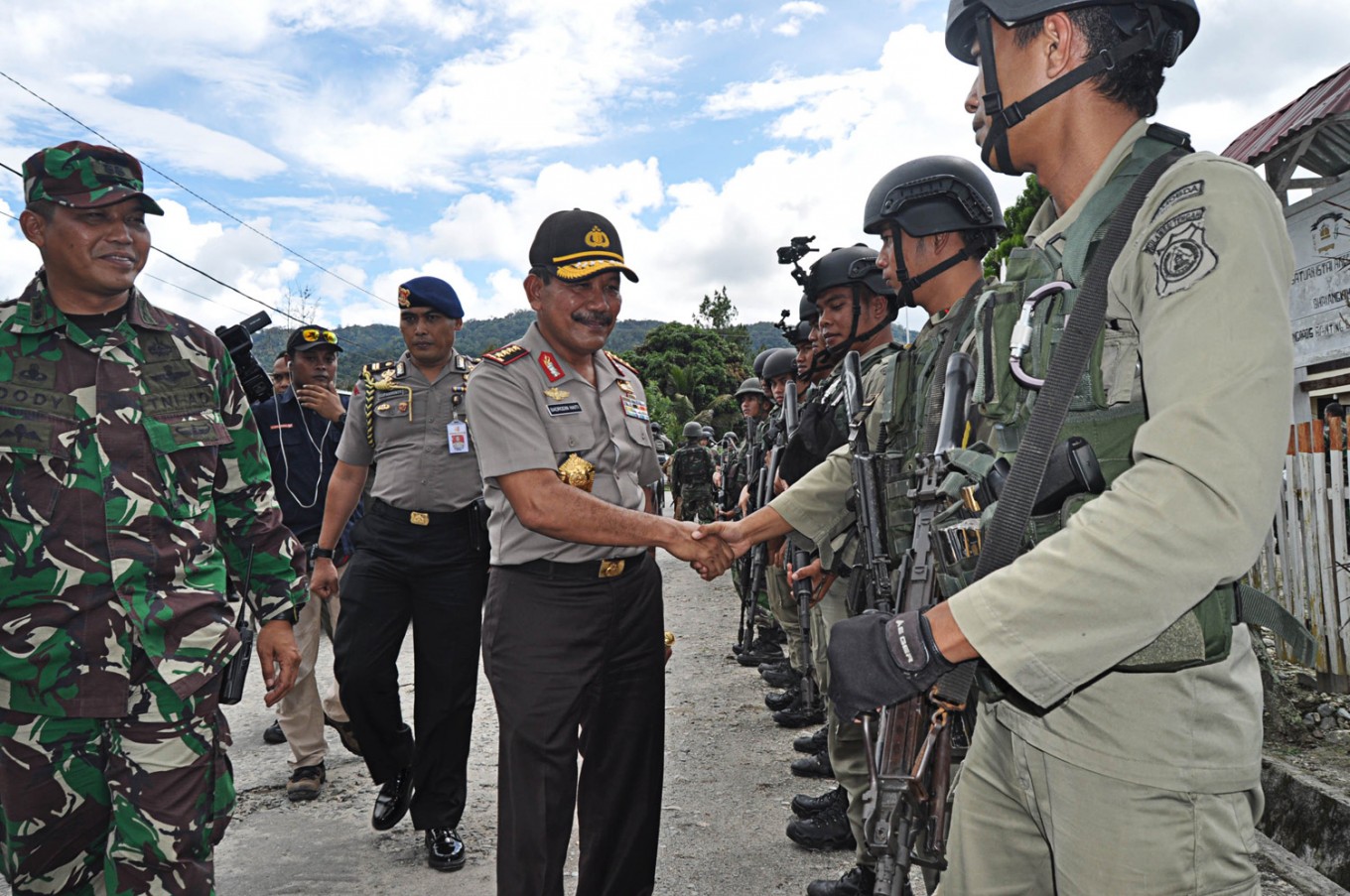Popular Reads
Top Results
Can't find what you're looking for?
View all search resultsPopular Reads
Top Results
Can't find what you're looking for?
View all search resultsExperts criticize lack of long-term measures in terrorism bill
Change text size
Gift Premium Articles
to Anyone
 In progress – National Police chief Gen.Badrodin Haiti inspects security personnel joining the Operation Tinombala Task Force in Poso, Central Sulawesi, on Friday. He said the operation to pursue the East Indonesia Mujahiddin (MIT) terrorist group leader, Santoso alias Abu Wardah, had shown progress although the leader had not yet been arrested. (thejakartapost.com/Ruslan Sangadji)
In progress – National Police chief Gen.Badrodin Haiti inspects security personnel joining the Operation Tinombala Task Force in Poso, Central Sulawesi, on Friday. He said the operation to pursue the East Indonesia Mujahiddin (MIT) terrorist group leader, Santoso alias Abu Wardah, had shown progress although the leader had not yet been arrested. (thejakartapost.com/Ruslan Sangadji)
E
xperts on Wednesday criticized the terrorism bill for its lack of focus on developing long-term counterterrorism measures in the country .
A researcher from Gadjah Mada University (UGM), Samsu Rizal Panggabean, said the current draft revision only strengthened the law enforcement aspects, but neglected any attempt at pursuing comprehensive conflict resolution until its end.
Instead of asserting deradicalization measures, which aimed to change ex-militants' radical ideologies, the government should concentrate on how to convince the former terrorists to stop carrying out violence, Rizal said.
"Changing people with radical thinking is rather hard. We should focus on convincing the militants to stop committing terrorist attacks," Rizal said.
According to Rizal, there are numerous things that the government and society can do to move ex-terrorists away from violence, such as by providing access to employment and separating them from their former militant companions, as long as the activities keep them busy with their new routines.
Radicalism in a context of ideas should not be a problem, since there were a lot of organizations with radical thinking in Indonesia, Rizal said, as long as they did not make violent attacks that injured others.
He used the example of former militants in Poso, Central Sulawesi, who still thought that police personnel were thaught (evil) and hated them for having launched attacks on their friends, but had decided to stop committing terrorist attacks against them.
Meanwhile, terrorism expert Ahmad Baedowi said the process to realize long-term conflict resolution that made a change in Poso was two years in the making, involving re-education of the militants.
He asserted that the government should make comprehensive programs that asserted an educational approach for ex-terrorists to make them draw back from violence and would not stop them from learning.
Supiadin Aries Saputra, a member of the House's special committee on deliberations over the terrorism bill, said if ex-militants were willing to cooperate in deradicalization programs, the government would provide them with the ability to pursue their livelihoods.
"They could be given work, capital and also education if those are the things they need, so then they would be separated from radicalism," Supiadin said. (dan)









